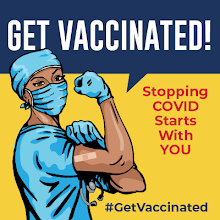I will continue to be skeptical and continue to mask up and remain cautious. They are saying July 4 weekend is the biggest travel day, so you can imagine all the illnesses that will be transmitted back and forth across the country!
CDC: New COVID-19 variant has potential to infect some people more easily
From The Signal, Santa Clarita Valley, CA. By Jack Phillips, Contributing Writer
"The U.S. Centers for Disease Control and Prevention said last week that a new COVID-19 variant spreading across the United States shows a higher potential to infect certain individuals, although the agency added that there is “no evidence” it causes more severe symptoms.
"In response to a question about the LB.1 variants’ severity, CDC spokesman David Daigle said that recently discovered variant LB.1 “has the potential to infect some people more easily based on a single deletion in a spike protein.”
"However, he noted that “there is currently no evidence that LB.1 causes more severe disease” and that “most key COVID-19 indicators are showing low levels of activity nationally, therefore the total number of infections this lineage may be causing is likely low.”
"Daigle said COVID-19-associated hospitalizations and deaths remain low.
“CDC will continue to track SARS-CoV-2 variants and is working to better understand the potential impact on public health,” he said.
"While the CDC spokesman commented on the LB.1 strain, the most recent data provided by the federal health agency shows that the KP.3 variant is dominant across the United States.
"As of June 22, the KP.3 variant makes up about 33% of COVID-19 cases reported nationwide, while the LB.2 variant makes up about 17.5%. The KP.2 variant, meanwhile, makes up about 20%, according to the CDC.
"LB.1, KP.2, and KP.3 are all descendants of the earlier JN.1 variant, according to the Infectious Diseases Society of America. But LB.1 has “an additional mutation,” the group said in an update on Thursday.
“Taken together, these results suggest that the potential for infection with an emerging variant of Omicron is substantial, even for individuals who have received the most recent COVID-19 vaccine updates,” the organization stated. “It appears that LB.1 and KP.2.3 exhibit higher infectivity and greater immune escape than KP.2 and KP.3.”
"The organization cautioned that “due to the nature of the rapid emergence of LB.1, these results have not yet been corroborated by real-world epidemiological evidence.”
"It comes as CDC data shows that 39 states are seeing higher levels of COVID-19 activity as of last week. However, the CDC’s historical trends show that hospitalizations and deaths from the virus are at or around all-time lows since the start of the pandemic in March 2020.
"Last month, the CDC announced that hospitals are no longer mandated to report COVID-19 hospital admissions, capacity, or related information, while certain graphs and trackers for the virus have disappeared from the health agency’s website.
“Most key COVID-19 indicators are showing low levels of activity nationally, therefore, the total number of infections this lineage may be causing is likely low,” a CDC spokesperson said in a statement earlier in June. The KP.3 variant is likely to become the “most common lineage” in the United States, the spokesperson said.
"As for KP. 3, Andy Pekosz, a molecular microbiology professor at Johns Hopkins University, said the newer variant also doesn’t appear to cause more severe symptoms. Antibodies provided through prior infection or vaccines have led to better outcomes in recent months, he said in an interview posted on the university’s website.
“You are contagious one to two days before you experience symptoms and a few days after symptoms subside. And as with previous variants, some people may have detectable live virus for up to a week after their symptoms begin, and some may experience rebound symptoms,” Pekosz said.
"An advisory panel for the U.S. Food and Drug Administration said in
early June that vaccine makers should now target any COVID-19 variants
that are derived from JN.1. Those vaccines should be rolled out in the
fall of 2024, the officials said."











.jpg)
No comments:
Post a Comment